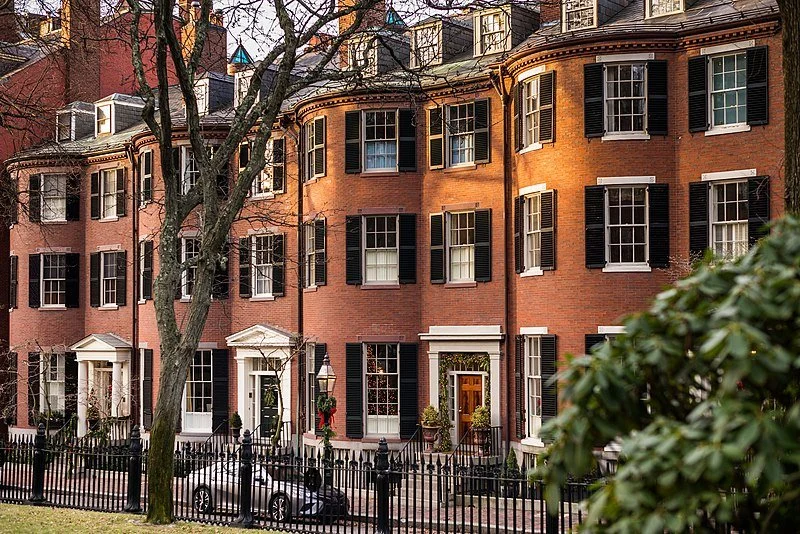
Money just for education and transport?
Will the “millionaires tax’’ drive any of the rich folks living in fancy streets like this on Boston’s Beacon Hill to move their official residences to Florida or New Hampshire?
Adapted from Robert Whitcomb’s “Digital Diary,’’ in GoLocal24.com
Massachusetts voters, by a 52-48 percent margin, approved what’s been dubbed “the millionaires’ tax’’ in the Nov. 8 election.
The Bay State has had a flat rate of 5 percent of federal adjusted gross income. A new constitutional amendment will add an additional 4 percent tax on taxable income over $1 million, starting in 2023, in a modest move to progressive taxation. (Federal taxation has progressive elements and unprogressive ones, the latter including shielding more income from capital gains than from earned income, favoritism that benefits the affluent.)
A Tufts University study projects that the “millionaires’ tax’’ will bring in about $1.3 billion next year, and that the levy would only affect 0.6 percent of households.
Proponents promise that all the money to be raised by the new tax would go to education and transportation. If that actually happens, it could strengthen the commonwealth’s – and New England’s – economy. Despite all the promotion of the Sun Belt’s tax systems – good for the rich, but not particularly for the poor and middle class, which are saddled with highly regressive sales taxes in these mostly Red States – the wealthiest states continue to be those willing to pay for good public services.
But would a recession, causing Massachusetts’s state tax revenues to fall, end up forcing the state to use much, or all, of that $1.3 billion to balance its budget? Could well happen next year in the predicted recession because there’s nothing to legally compel officials to spend the money just on schools and transportation (presumably mostly the MBTA, including trains to and from Rhode Island).
In any event, because of the new tax, a few rich folks will leave, and/or threaten to leave, the Bay State to go to Florida, that paradise of income-tax avoiders, money launderers, gigantic, floodable oceanside mansions, inland tarpaper shacks, big donors to GOPQ campaigns, 7-Elevens, terrifyingly wide intersections and Burmese pythons, or to, say, New Hampshire, which prospers in no small degree because it’s next to the great wealth creator of Greater Boston, in a state that’s willing to pay for extensive public services that support that wealth creation.
(While New Hampshire famously has no income or sales tax, it relies very heavily on property taxes. About 65 percent of government revenues come from property taxes – the highest dependence on such levies in the U.S.)
By the way, eight of the ten states most dependent on federal money are GOPQ-dominated and seven of the nine states that send more to the Feds than they receive are Democrat-dominated. But maybe that will change as people move around.
